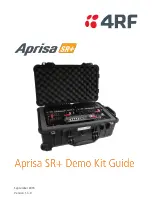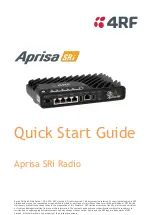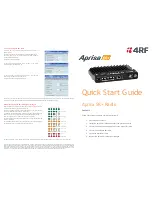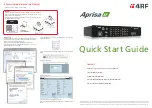
TM9456 Dual-Radio Installation and Programming Guide
Installing a Dual-Radio System
36
© Tait Limited
July 2016
2.9
Checking the Installation
Warning
Danger of fire. The radio’s protection mechanisms rely
on the correct fuses on both the negative and positive power supply
leads being present. Failure to fit the correct fuses may result in fire
or damage to the radio.
The >25 W radios use 20 A fuses; the 25 W radios use 10 A fuses. For
part numbers of the fuses, refer to
Equipment for Completeness” on page 13
.
4.
Insert the fuses into the power leads. The radio will turn on
automatically at this point.
5.
Switch the radio off then on again using the front panel control, but
do not transmit.
6.
Connect an in-line power meter between one radio and its antenna.
7.
Transmit and measure the forward and reflected power levels.
Less than 4% of the forward power should be reflected. If this is not
achieved, check the installation, including the antenna length.
8.
Start reducing the length of the antenna in steps of 0.1 inches to
0.2 inches (2 to 5 mm). Measure the power levels at each step.
Notice
Some antennas are pre-tuned and must not be cut. Check with
the manufacturers’ instructions.
9.
Once the reflected power levels are within tolerance, repeat steps 3,
4 and 5 for the second radio.
10.
Test the dual-radio functions.
■
Compare the receive functions (such as sensitivity) of one radio,
while the other radio is and is not transmitting. Ensure there is no
significant difference.
■
Compare the transmit functions (such as coverage) of one radio,
while the other radio is and is not transmitting.
■
Test all other functions, such as dual-receive. Check that those
functions operate as expected.
If issues are found, move the radio bodies and/or antennas further
apart and re-test.
25W
















































